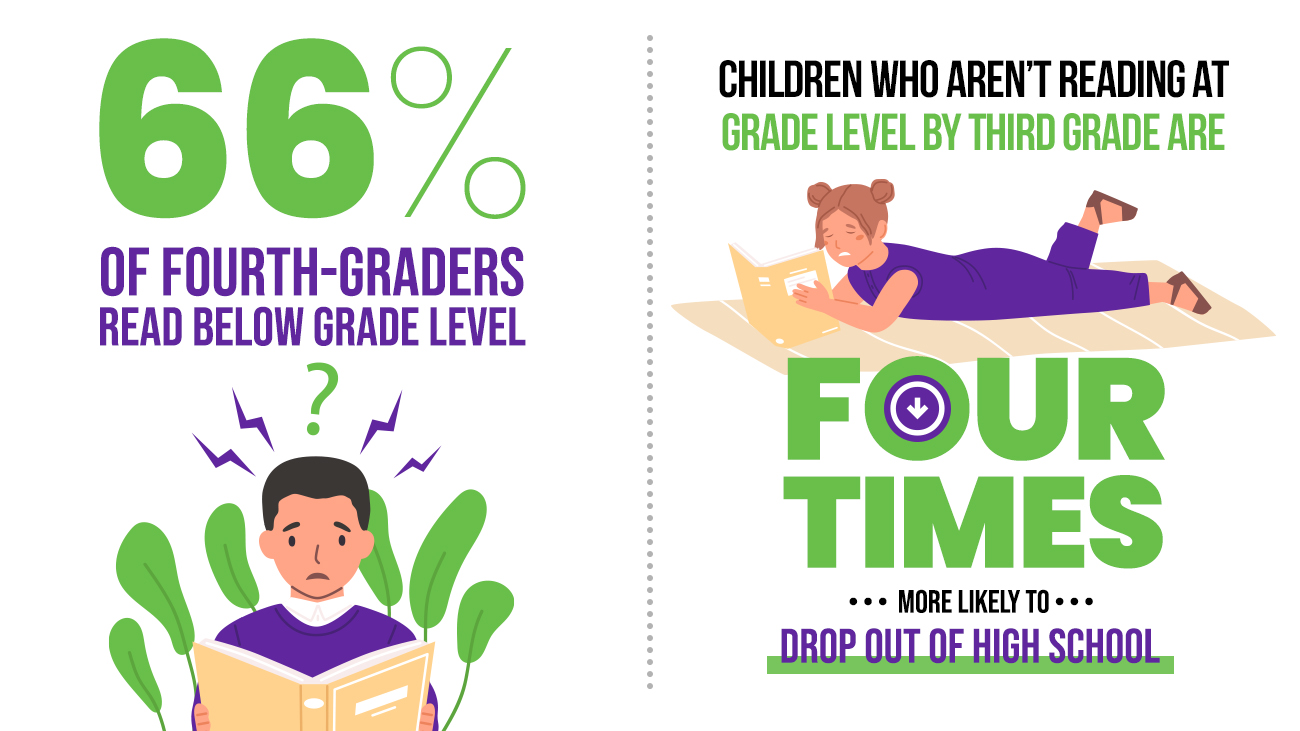Did you know that 40 million children in the US have undiagnosed vision problems?
Don't Let Vision Hold Your Child Back
Our Optometric Vision Therapy programs bring the expertise you've come to expect from our 4D Vision Gym coaches to your home.
Now it's easier than ever to support your child's long-term success.

Vision therapy for children addresses learning-related vision challenges by retraining how the eyes and brain work together. At 4D Vision Gym, we offer personalized in‑office and at‑home vision‑therapy programs that fit your family’s life. After a comprehensive evaluation to identify your child’s vision‑related challenges, we design a custom plan that helps them read more comfortably, improve focus and build confidence both in the classroom and beyond.
"Many children face hidden vision challenges that can affect their ability to thrive in school. With early intervention, these issues can be addressed, opening doors to academic and personal success."
~ American Optometric Association
Children with uncorrected vision problems are 3 times
more likely to struggle with academics and social interactions compared to their peers.
"The eyes are the gateway to learning and development. Ensuring healthy vision is essential to a child’s success in school and life."
~ Dr. Susan Barry, Neurobiologist and Author of Fixing My Gaze
Some kids, unfortunately, may not show signs of typical vision problems because they have learned ways to adapt. However, as children get older, it becomes more difficult to adapt as the amount of reading required increases and the print size becomes smaller. In the first 30 to 60 days of school, certain challenges may come to light, often pointing to undiagnosed vision issues that routine screenings at schools or pediatric offices may miss.
Did you know that 1 in 4 children has an undetected vision problem?
All Parents Should Know the Signs That a Vision Problem May be Interfering with Learning
Does your child…
- Squint or close one eye frequently when reading?
- Tilt their head to one side regularly?
- Experience blurry or unclear vision?
- Lose their place when copying from the board or while reading?
- Skip words or lines frequently when reading?
- Hold books close while reading?
- Have trouble remembering what they’ve just read?
- Become tired or irritable when reading?
How 4D Vision Gym Can Transform Your Life
Our members have shared heartfelt success stories about the incredible shifts they’ve experienced here at 4D. From children who’ve gained the confidence to thrive academically, to adults who’ve rediscovered their independence after recovery — each story represents a life empowered by the 4D Method.

















